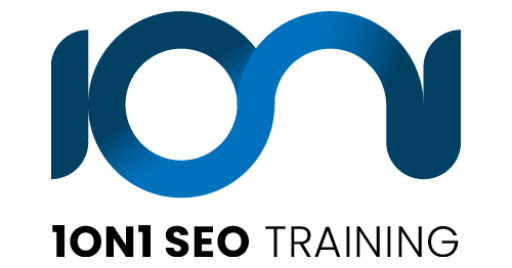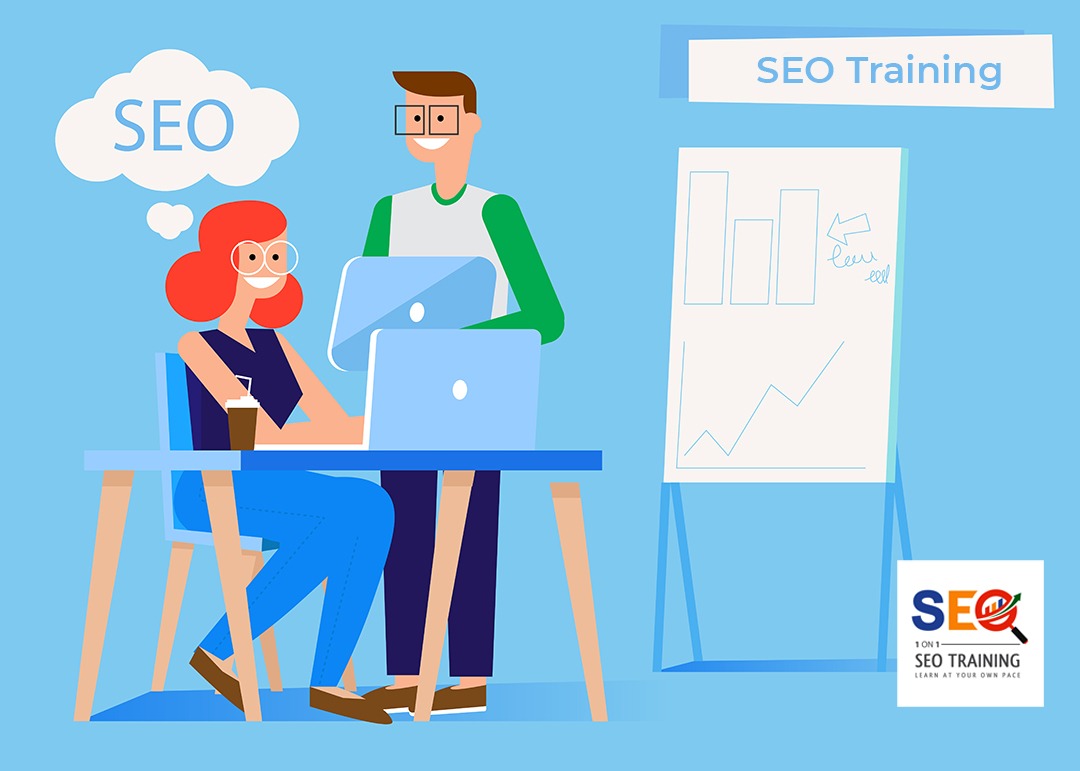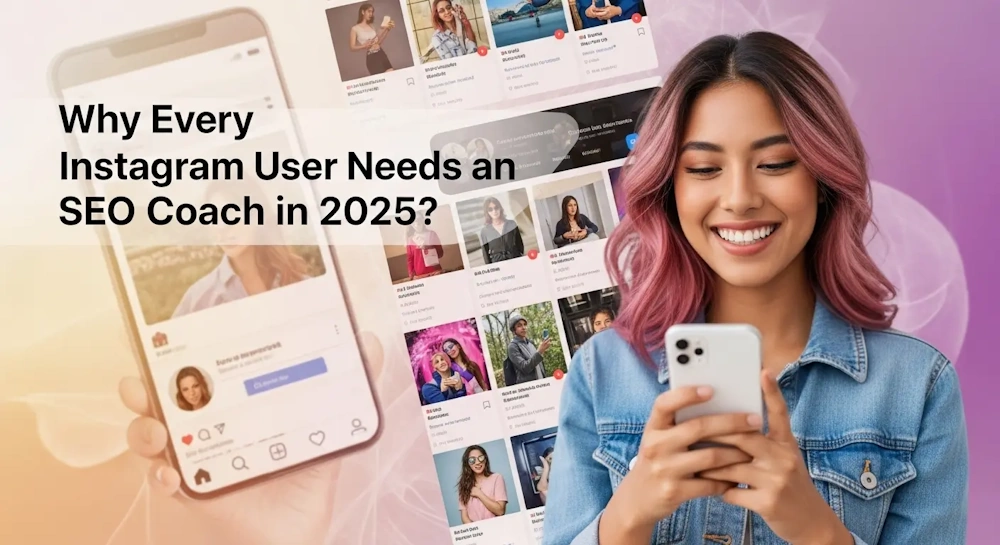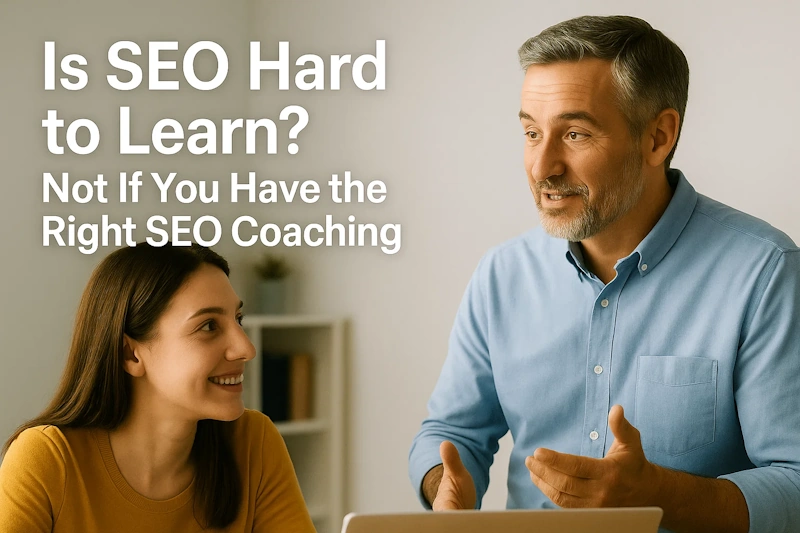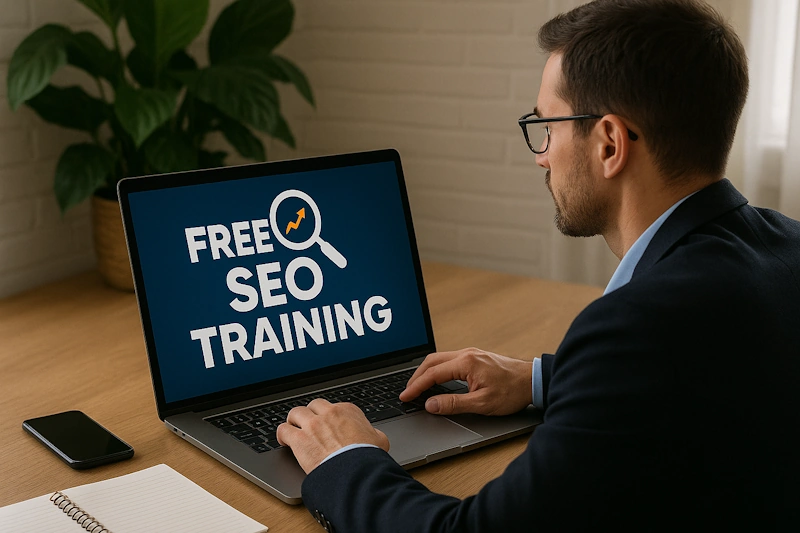Search engine optimization is hard to ignore as the best digital marketing channel.
Yes, it is a marketing channel and not just a great way to reach customers on Google. SEO also helps improve brand visibility, so businesses can close more deals and get more sales. Thus, 100% of the work that goes into SEO is transformed to high marketing energy, and in the end, the businesses who master SEO and evolve with the times get to stay on top of the SERPs and the digital marketing ocean for a long, long time.
Is Working with an SEO Teacher Worth It?
"Can I learn SEO on my own?"
I get this question a lot as a professional SEO teacher and accountability partner. And the answer is yes, you can learn on your own.
But the bigger question is, how long would that take you?
The central problem with self-learning SEO is that much of the information available for free online is generally laid out in general and theoretical terms. So what happens to the real-world problems that your site is experiencing now?
Suppose you need honest, practical SEO training about Google to fix your website so your business doesn't tank. If this is the situation, you need the help of a professional SEO teacher who has extensive, real-world experience in helping businesses and organizations rank and scale. Here at 1ON1 SEO Training, my service helps business owners, marketers, and managers understand how SEO applies to their digital properties now. However, it's challenging to apply the theory when the information is so broad that you don't know where to start.
Everyone knows that keywords are essential, but what do you do with 1,000 keyword results with dozens of longtail keywords that mean the same thing?
SEO pages say that Core Web Vitals are crucial, but how do you make a mobile-ready page attractive enough for people to buy computer parts?
Business journals say that landing pages can make or break a business, but how do you optimize a landing page to attract living, breathing people?
Google says that page experience is number one, but how do you improve the page experience of customers visiting a bakery website?
When you partner with an SEO consultant, you not only learn practical SEO knowledge gained from years of experience, but you also get to optimize your site while you are learning. A book can't do that, at least not immediately. YouTube videos will only show you how it can be done on other websites. For example, watching how someone optimized a 3D printing site that specializes in zany animal figurines may not be that helpful if you're optimizing a personal piano teacher website. All the coordinates would be off. That would be like using a map to Thailand, but your actual destination is Moscow.
What's the Best SEO Course?
There is no single SEO course out there that will answer all your questions. Some SEO courses are well-researched by people who live and breathe the industry, and it might be helpful also to read these in your spare time. But again, it's important to distinguish between knowing the concept and how to open the hood and do repairs. Perhaps a better method would be to ask - who will help me apply all of the SEO smarts that I have accumulated by reading the internet?
An SEO teacher must partner with you, look at your site, and teach you the best ways to do things. And there are so many steps to SEO that building a to-do list from scratch usually intimidates new owners because one step can lead to ten other actions, and so on. What an SEO coach brings to the picture is invaluable focus and experience and the capacity to prioritize tasks over the next seven days, thirty days, six months, and so on.
Why do people need SEO training about Google?
It has less to do with the brand and more that Google is the world's biggest search engine. There was an era when Yahoo was synonymous with search, but the company failed to sustain its growth and focus, and Google just swept in with its search engine and Android.
Now both Android, Google, and Google Assistant are ubiquitous in all parts of the globe. Google is now synonymous with search. If Lycos, Yahoo, or Bing can do it in the next decade, people would be optimizing for those search engines and not Google. These developments matter because the market constantly changes, and businesses need to be where the consumers are.
Best SEO Courses Checklist
There is no shortage of SEO guides about Google.
In recent years, Google has focused on creating a better web by going after link farms, link spammers, private blog networks, black hat SEO practitioners, and so on.
Google's formula is super simple. If you plan to be sneaky so you can game the system by paying for spammy links or spending on PBNs that post thin content to influence SERPs, they're going to penalize your site, and you're not going to make money from search marketing. Google's approach hurt a lot of places in the past because it was also easy to game search results some two decades ago.
But people started complaining about the quality of Google's search results, probably because all they saw were poorly written, fluffy content from article directories.
So the best place to start is reading Google's documentation, particularly from Google Search Central. Then, find below some links to helpful stuff and just read everything one at a time to understand what's going on.
Search Engine Optimization Starter Guide
Beginner's guide to how search works
Advanced webmaster guidelines
How sitemaps work and last, but not the least…
The Beginner's Guide to the Search Console
Ahrefs
Ahrefs has a comprehensive beginner's guide to SEO that covers just the basics of how the effort works. Note that this is a broad overview and is not too technical. Nevertheless, it's an excellent way to get started if you want to begin optimizing your site for a few exciting keywords. The guide has six chapters covering the significant domains you may already be familiar with: how search engines work, SEO basics, keyword research, on-page SEO, link building, and technical SEO. The chapters are laid out in bite-sized chunks that are easy enough to understand. They also used a FAQ-type layout so people who have specific questions about these different domains can quickly identify what they need and move forward.
MOZ SEO Learning Center
MOZ is a longtime leader in SEO education, and they also offer software for SEO professionals. The SEO Learning Center is packed with materials for intermediate and advanced learners. They have a separate beginner's guide and a watchable series of videos, too. They want people to go through the basics before attempting the more advanced lessons in the SEO Learning Center. People need a foundation before tackling technical audits and the like. If you can learn some HTML and get to the basics of how sites are developed, those would be helpful in the long run too.
Backlinko
Backlinko has plenty of resources for learning SEO, and this one is simple enough for beginners. Backlinko has separated SEO into nine chapters: SEO fundamentals, keyword research, on-page SEO, technical SEO, link building and content promotion, UX signals, video SEO, some case studies, and their archive of SEO resources. It should be a good read for people who need a broad overview of what they can do to help improve their site SEO and content SEO, too.
How to Get Ready for Real SEO
SEO is marketing, and marketing requires a steady mind and a steady hand – and a site that doesn't bog down with traffic. So if you're getting ready to learn SEO and genuinely apply techniques that you will be learning from your SEO teacher, you need to work with this checklist.
Get rid of anything that slows you down.
The speed of your website is an essential component of SEO. In the past, search engines cared very little if your site loaded like molasses.
That's something I'm sure you can connect to. Unfortunately, that's never a pleasant experience. And in the realm of digital marketing, that's like hugging, kissing, and sitting on the lap of a Dementor (pardon the Harry Potter reference).
A sluggish page irritates customers and makes them less likely to buy your product. A slow site is perceived as untrustworthy by potential buyers. Period.
Search engines, too, value page speed. According to statistics, 40% of people will quit a website that needs over three seconds to load.
There is now a tremendous demand for speed as businesses become more aware of the opportunity to create targeted leads and enhance revenue through search engine optimization.
You may end up fighting a losing battle for top organic ranks if your pages are slow. Remove non-essential items that cause your site to load slowly. If you use WordPress, consider disabling plugins that you don't use. Also, clean your sidebar and only include necessary widgets.
Don't be afraid to link to other websites that contain relevant information.
Some people believe that linking to essential and trustworthy content pages is damaging because it redirects visitors away from your site. This is the wrong mindset. Link building is still a necessary aspect of any successful search engine optimization plan. The best sites link to other great resources, even if they happen to be direct competitors. Why? Because this practice is beneficial to readers.
If you're hesitant to give first, you can't expect others to provide for you. If you want inbound links from credible blogs, for example, one of the simplest methods to do so is to demonstrate your desire to link out to such sites from your material.
Naturally, it would help if you only connected to extremely valuable website content. It's an excellent SEO strategy. More importantly, when you connect to an influencer, they will be notified, and if your piece is worthwhile, they will link back to you, share it, or even email it to their massive email subscriber list. It's also about quality, not number when it comes to link building. If you have a few trustworthy links rather than a dozen low-quality links, you'll get higher confidence in your field.
Write first for humans, then for search engines.
There has been an increasing trend of content producers reverting to the old SEO strategy, in which keywords intended to boost search results are prioritized over engaging and meaningful content.
If this describes your general approach, it's time to make a mental shift. Many people still don't use longtail keywords, choosing instead to try to game search engines. That is the wrong approach.
Search engine robots are little more than scripts; they don't buy items, communicate with you on social platforms, or become loyal customers. So when you're writing, forget about Google and other search engines. Create stuff that will benefit someone instead. SEO copywriting is the term for this.
Surprisingly, putting people first leads to creating valuable content that search engines reward since search engines follow users. Unfortunately, the situation is not the other way around. At the same time, you'll be improving the user experience and gaining your audience's trust.
Encourage other reputable websites to link to you.
Inbound links are still the lifeblood of SERPs to a considerable extent. When dofollow and nofollow links are examined by search engines together, you have a genuine link profile that even Google will appreciate. SEO aims to create high-quality, engaging content that encourages others to link to you and share it on social media.
Put analytics in place right away
After you've clearly defined your search engine optimization goals, you'll need tools to keep track of what's working and what isn't. You can track your SEO success with Google Search Console, Google Analytics, and other analytics software solutions.
